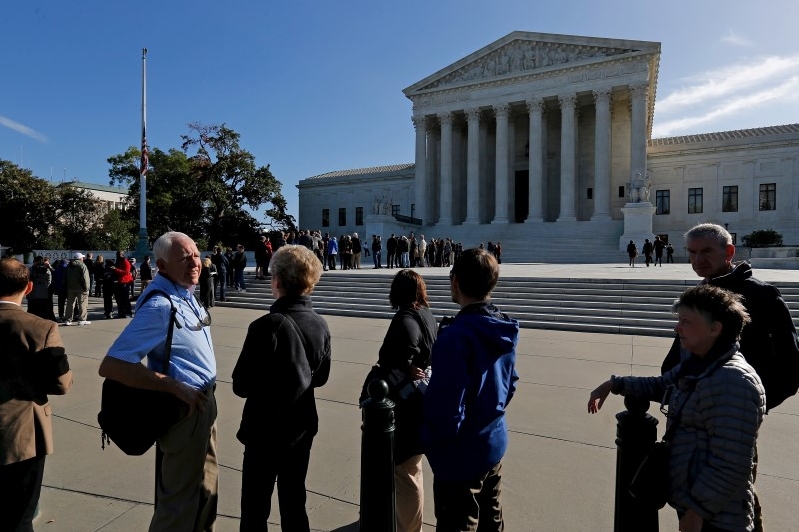
Americans are split over abortion restrictions like those in a Texas law challenged before the U.S. Supreme Court, reflecting deep and longstanding divisions over the contentious issue, according to a Reuters/Ipsos poll released on Wednesday.
In the online poll of 3,387 U.S. adults, 41 percent of respondents said laws like the one in Texas are intended to make abortion clinics safer, 35 percent said such laws are designed to make it difficult or impossible for women to obtain abortions, and 24 percent said they did not know.
The 2013 Texas law mandated costly hospital-grade standards for abortion clinics and required doctors who perform abortions to have admitting privileges at nearby hospitals.
In the poll, 43 percent of respondents said abortion should be legal in most or all cases, 41 percent said it should be illegal in most or all cases and 16 percent said they were unsure.
Views on abortion in the United States have changed very little over decades, according to historical polling data maintained by Gallup.
The high court last Friday said it would hear a legal challenge brought by abortion providers to the Republican-backed law, its first major abortion case since the justices upheld a federal ban on a late-term abortion procedure in 2007.
Asked how they felt the Supreme Court should rule in the Texas case, 33 percent of poll respondents said the justices should strike down the law, 32 percent said they should uphold it and 36 percent said they did not know.
The Supreme Court legalized abortion in its landmark 1973 Roe v. Wade ruling. But a woman's right to terminate a pregnancy remains a contentious issue among Americans and some states have sought to restrict abortion.
Ten of the 50 U.S. states have imposed doctor admitting-privilege requirements like those in Texas, while six have laws requiring hospital-grade facilities for abortion clinics mirroring the Texas law, according to the Center for Reproductive Rights, which represents abortion providers in the case before the Supreme Court.
The Supreme Court is set to hear oral arguments in the case in early spring, with a ruling due by the end of June.
The poll was conducted between Nov. 12 and Nov. 17. Reuters/Ipsos online polls are measured with a credibility interval. Among all respondents, the poll had an overall credibility interval of plus or minus 1.9 percentage points.






